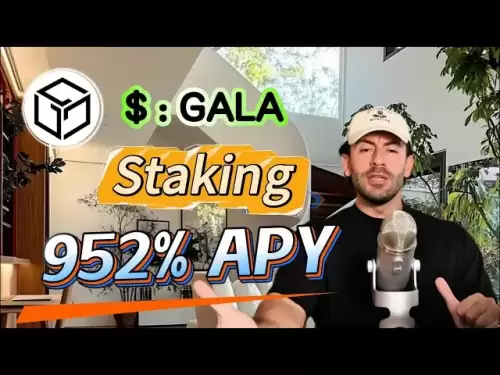-
 Bitcoin
Bitcoin $114500
-0.31% -
 Ethereum
Ethereum $3648
1.11% -
 XRP
XRP $3.033
-0.27% -
 Tether USDt
Tether USDt $0.9999
-0.01% -
 BNB
BNB $758.5
-0.32% -
 Solana
Solana $167.5
1.48% -
 USDC
USDC $0.9998
-0.02% -
 TRON
TRON $0.3331
0.74% -
 Dogecoin
Dogecoin $0.2039
0.25% -
 Cardano
Cardano $0.7419
-0.46% -
 Hyperliquid
Hyperliquid $39.21
2.66% -
 Stellar
Stellar $0.4049
-1.95% -
 Sui
Sui $3.483
-0.56% -
 Bitcoin Cash
Bitcoin Cash $570.8
2.89% -
 Chainlink
Chainlink $16.67
-0.57% -
 Hedera
Hedera $0.2470
-1.57% -
 Ethena USDe
Ethena USDe $1.001
0.00% -
 Avalanche
Avalanche $22.36
1.52% -
 Litecoin
Litecoin $123.4
4.35% -
 UNUS SED LEO
UNUS SED LEO $8.989
0.09% -
 Toncoin
Toncoin $3.324
-2.40% -
 Shiba Inu
Shiba Inu $0.00001219
-1.30% -
 Uniswap
Uniswap $9.811
2.54% -
 Polkadot
Polkadot $3.662
-0.07% -
 Monero
Monero $295.5
-3.85% -
 Dai
Dai $1.000
0.01% -
 Bitget Token
Bitget Token $4.345
0.24% -
 Cronos
Cronos $0.1380
0.95% -
 Pepe
Pepe $0.00001044
-1.14% -
 Ethena
Ethena $0.5981
-4.24%
How do I identify scams in the NFT market?
To avoid NFT scams, verify project legitimacy, analyze market trends, check community feedback, use analytics tools, and protect your investments with strong security measures.
Apr 17, 2025 at 01:01 pm
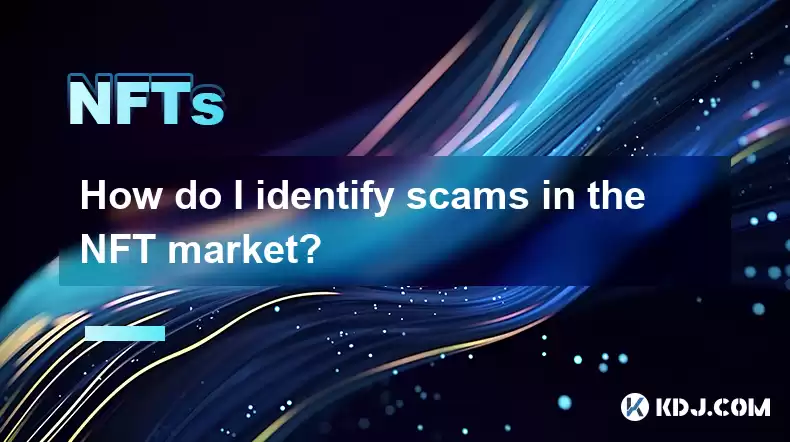
In the fast-paced world of cryptocurrency, the NFT (Non-Fungible Token) market has become a hotbed for both innovation and scams. As an investor or enthusiast, it's crucial to identify and avoid scams to protect your investments and maintain trust in the ecosystem. Here's a comprehensive guide on how to identify scams in the NFT market.
Understanding Common NFT Scams
NFT scams can take various forms, but some of the most common include phishing attacks, fake NFT projects, and rug pulls. Phishing attacks involve scammers posing as legitimate NFT platforms or projects to steal your personal information or cryptocurrency. Fake NFT projects promise high returns or exclusive access but disappear after collecting funds. Rug pulls occur when project creators abandon the project after raising funds, leaving investors with worthless tokens.
To identify these scams, it's essential to understand their mechanisms and warning signs. For instance, phishing scams often use similar-looking URLs or social media accounts to trick users. Fake NFT projects may promise unrealistic returns or use aggressive marketing tactics. Rug pulls are often preceded by sudden changes in the project's communication or the team's sudden disappearance.
Verifying Project Legitimacy
Before investing in any NFT project, it's crucial to verify its legitimacy. Start by researching the project's team. Look for information about the team members on professional networks like LinkedIn or their personal websites. Legitimate projects usually have a transparent team with verifiable backgrounds.
Next, check the project's website and social media presence. Legitimate projects have well-designed websites with clear information about their mission, roadmap, and team. They also maintain active social media accounts where they engage with the community and provide regular updates.
Another critical step is to review the project's smart contract. You can use blockchain explorers like Etherscan to view the smart contract's code and transaction history. Look for any suspicious activities or changes to the contract that could indicate a potential scam.
Analyzing Market Trends and Hype
The NFT market is often driven by hype, which scammers exploit to their advantage. Be wary of projects that promise quick and high returns, as these are often too good to be true. Instead, focus on projects with a solid foundation and a clear value proposition.
Monitor market trends and news to stay informed about the latest developments in the NFT space. This can help you identify which projects are gaining genuine traction and which ones are artificially hyped. Use reputable sources like CoinDesk, Decrypt, or CryptoSlate to stay updated.
Checking Community Feedback and Reviews
Community feedback is a valuable resource when identifying NFT scams. Join relevant Discord servers, Telegram groups, or Reddit communities to see what other users are saying about a project. Pay attention to any red flags or warnings from experienced investors.
Read reviews and ratings on platforms like Trustpilot or NFT-specific review sites. While not all reviews are reliable, a pattern of negative feedback can be a strong indicator of a potential scam. Look for detailed reviews that explain why users are dissatisfied with a project.
Using Tools and Resources
Several tools and resources can help you identify NFT scams. Use blockchain analytics tools like Nansen or Dune Analytics to track the flow of funds and identify any suspicious activities. These tools can help you see if funds are being moved to unknown wallets or if there are any unusual transaction patterns.
Subscribe to scam alert services like ScamSniffer or RugDoc, which provide real-time updates on potential scams in the NFT market. These services often have a community-driven approach, where users can report suspicious projects and share their findings.
Utilize NFT-specific tools like Rarity Tools or NFTScan to analyze the rarity and value of NFTs. These tools can help you determine if an NFT's price is justified or if it's being artificially inflated by scammers.
Protecting Your Investments
Once you've identified potential scams, it's important to take steps to protect your investments. Use strong, unique passwords for all your accounts and enable two-factor authentication (2FA) wherever possible. This can help prevent phishing attacks and unauthorized access to your funds.
Never share your private keys or seed phrases with anyone. Scammers often use social engineering tactics to trick users into revealing their private information. Keep your private keys secure and offline, preferably in a hardware wallet.
Diversify your investments to minimize the risk of falling victim to a scam. Instead of putting all your funds into one NFT project, spread your investments across multiple projects with different risk profiles. This can help mitigate the impact of a potential scam.
Frequently Asked Questions
Q: How can I report an NFT scam?
A: If you suspect an NFT scam, you can report it to the platform where the scam occurred, such as OpenSea or Rarible. Additionally, you can report it to scam alert services like ScamSniffer or RugDoc, which can help spread the word and prevent others from falling victim to the same scam.
Q: Are there any red flags to look out for in NFT project whitepapers?
A: Yes, several red flags can indicate a potential scam in an NFT project whitepaper. These include vague or unrealistic promises, lack of detailed information about the team and roadmap, and missing or unclear tokenomics. Always read the whitepaper carefully and cross-reference the information with other sources.
Q: Can I recover my funds if I fall victim to an NFT scam?
A: Recovering funds from an NFT scam can be challenging, but it's not impossible. If you've been scammed, immediately report the incident to the platform and any relevant authorities. You can also seek help from blockchain forensic services like Chainalysis, which specialize in tracking and recovering stolen cryptocurrency. However, the success of recovery efforts depends on various factors, including the nature of the scam and the timeliness of your actions.
Q: How can I stay updated on the latest NFT scams?
A: To stay updated on the latest NFT scams, follow reputable sources like CoinDesk, Decrypt, or CryptoSlate, which often report on scams and provide tips for avoiding them. Additionally, join NFT-focused communities on platforms like Discord or Reddit, where users share real-time information about potential scams. Subscribing to scam alert services like ScamSniffer or RugDoc can also provide timely updates on new scams in the NFT market.
Disclaimer:info@kdj.com
The information provided is not trading advice. kdj.com does not assume any responsibility for any investments made based on the information provided in this article. Cryptocurrencies are highly volatile and it is highly recommended that you invest with caution after thorough research!
If you believe that the content used on this website infringes your copyright, please contact us immediately (info@kdj.com) and we will delete it promptly.
- Metamask, Altcoins, and the Move: Is Cold Wallet the Future?
- 2025-08-06 04:30:12
- BlockDAG, BNB, and SEI: What's Hot and What's Not in the Crypto World
- 2025-08-06 04:50:13
- Cryptos Under $1 Primed for a Bull Run: Which Will Explode?
- 2025-08-06 05:30:12
- Coinbase (COIN) Stock Trading Lower: Navigating the Crypto Equity Reset
- 2025-08-06 04:35:13
- Meme Coins Skyrocket: Is Dogecoin About to Be Dethroned?
- 2025-08-06 03:50:13
- Tether's On-Chain Surge: USDT Dominates and Drives Blockchain Fees
- 2025-08-06 02:50:13
Related knowledge
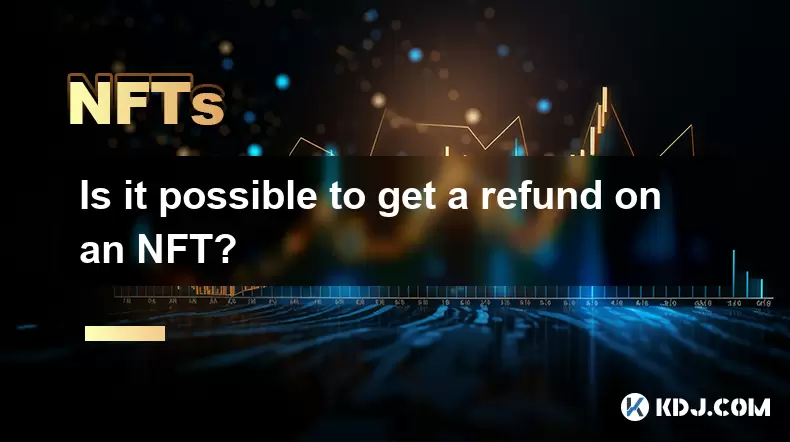
Is it possible to get a refund on an NFT?
Jul 21,2025 at 08:35pm
Understanding NFT Transactions and RefundsWhen you purchase an NFT (Non-Fungible Token), the transaction is typically recorded on a blockchain, making...
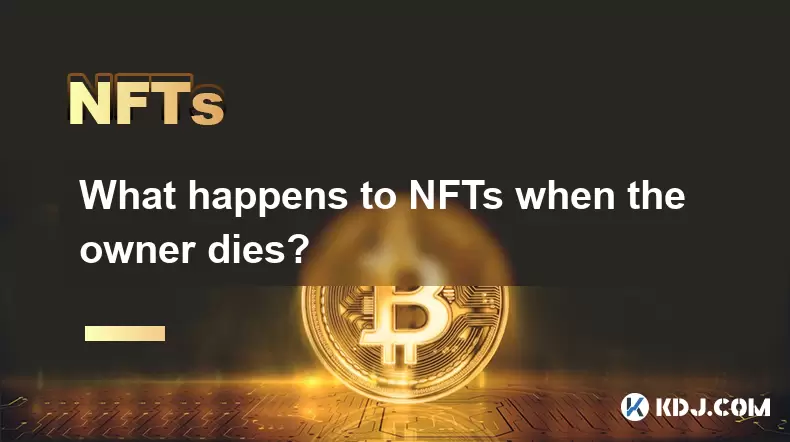
What happens to NFTs when the owner dies?
Jul 22,2025 at 02:43pm
Legal Ownership and Digital AssetsWhen an individual owns NFTs, the question of what happens to these assets upon their death is a pressing one. NFTs ...
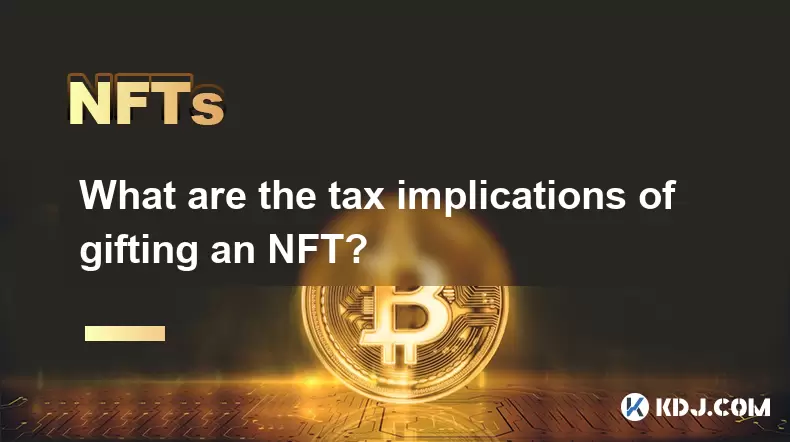
What are the tax implications of gifting an NFT?
Jul 19,2025 at 04:21am
Understanding the Basics of NFT GiftingGifting a Non-Fungible Token (NFT) involves transferring ownership from one individual to another without recei...
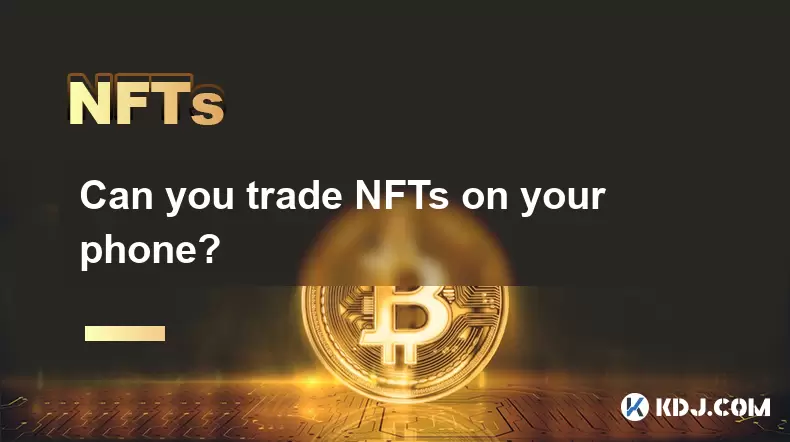
Can you trade NFTs on your phone?
Jul 18,2025 at 04:29am
Trading NFTs on Mobile DevicesYes, you can trade NFTs on your phone, and the process has become increasingly streamlined thanks to a variety of mobile...
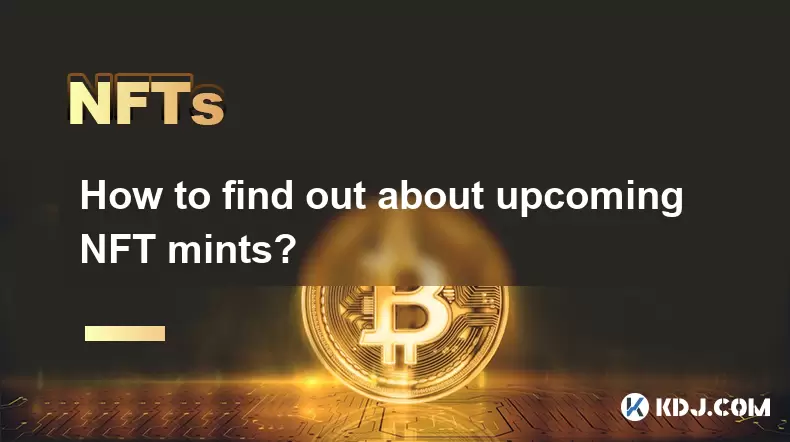
How to find out about upcoming NFT mints?
Jul 18,2025 at 11:50am
Exploring NFT Minting OpportunitiesUnderstanding the landscape of upcoming NFT mints is crucial for collectors, investors, and creators who wish to st...
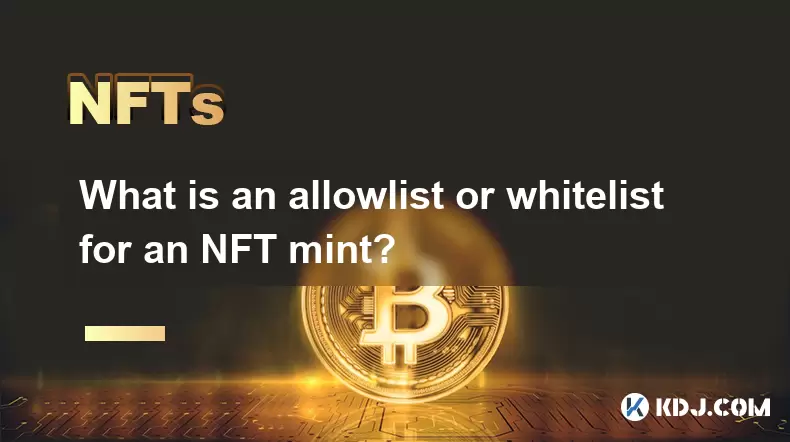
What is an allowlist or whitelist for an NFT mint?
Jul 20,2025 at 07:14pm
Understanding the Concept of an Allowlist for NFT MintingAn allowlist, also commonly referred to as a whitelist, is a mechanism used in the NFT mintin...

Is it possible to get a refund on an NFT?
Jul 21,2025 at 08:35pm
Understanding NFT Transactions and RefundsWhen you purchase an NFT (Non-Fungible Token), the transaction is typically recorded on a blockchain, making...

What happens to NFTs when the owner dies?
Jul 22,2025 at 02:43pm
Legal Ownership and Digital AssetsWhen an individual owns NFTs, the question of what happens to these assets upon their death is a pressing one. NFTs ...

What are the tax implications of gifting an NFT?
Jul 19,2025 at 04:21am
Understanding the Basics of NFT GiftingGifting a Non-Fungible Token (NFT) involves transferring ownership from one individual to another without recei...

Can you trade NFTs on your phone?
Jul 18,2025 at 04:29am
Trading NFTs on Mobile DevicesYes, you can trade NFTs on your phone, and the process has become increasingly streamlined thanks to a variety of mobile...

How to find out about upcoming NFT mints?
Jul 18,2025 at 11:50am
Exploring NFT Minting OpportunitiesUnderstanding the landscape of upcoming NFT mints is crucial for collectors, investors, and creators who wish to st...

What is an allowlist or whitelist for an NFT mint?
Jul 20,2025 at 07:14pm
Understanding the Concept of an Allowlist for NFT MintingAn allowlist, also commonly referred to as a whitelist, is a mechanism used in the NFT mintin...
See all articles





















